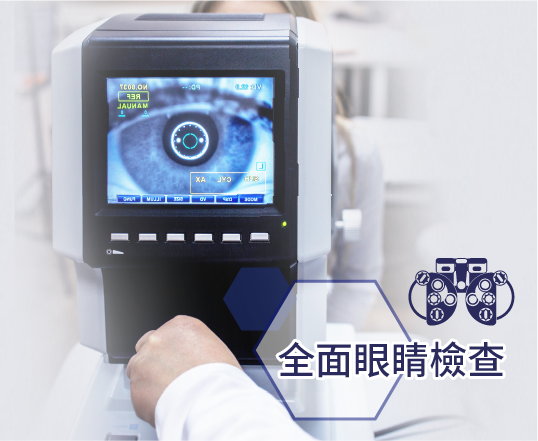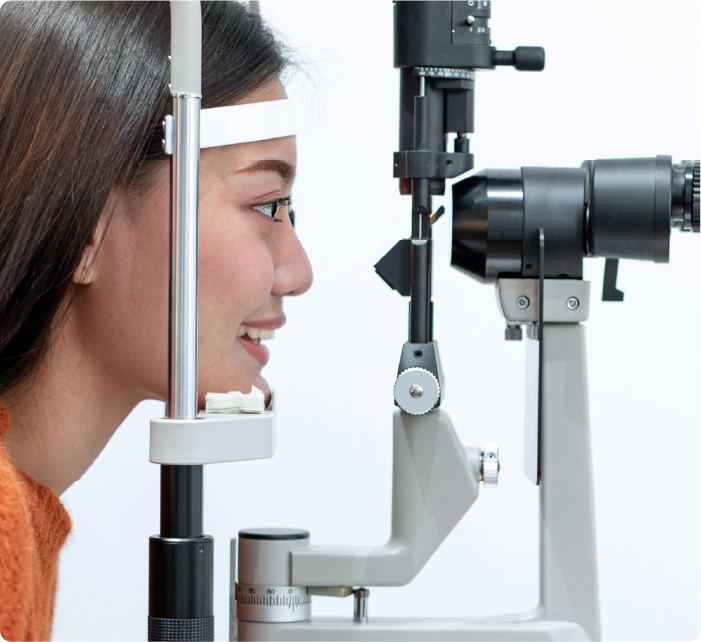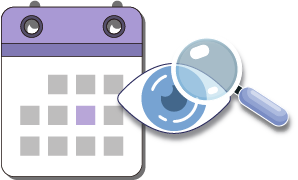


全面眼睛檢查計劃
隨著生活中對3C產品的依賴愈來愈強,除了以往工作時要用電腦,現在隨時隨地看手機的人也愈來愈多,就連等車的時間都不忘用手機瀏覽社交軟件。長期過度使用眼睛可能導致眼疾提早出現,例如深近視、飛蚊症等,而且有機會造成睫狀肌緊繃及眼壓升高,便會引發青光眼。
很多眼疾初期症狀難以察覺,不會對視力有明顯的影響,但當長期被置之不理,會對視力產生不可逆轉的傷害。所以一定要定期進行眼睛檢查。全面眼睛檢查計劃是一種詳細眼科視光檢查,由註冊視光師主理驗眼服務,除了能檢測近視、遠視、散光和弱視等常見眼睛問題,更能及時發現較為嚴重的眼疾,如早期視網膜病變、白內障及青光眼、黃斑病變等。
為什麼需要全面眼科視光檢查?

一般情況下,除了視力受影響,其他眼科疾病都不輕易被發現,所以需要進行深入的眼睛檢查才可以知道自己眼睛是否健康。家族中有眼部疾病病史及高危人仕,如年齡較高 (40歲以上的成年人),患上白內障、青光眼、黃斑點病變及視網膜退化等眼疾的風險較高,應定期進行全面眼睛檢查,有助及早發現眼部問題,並作出合適治療。
全面的眼睛檢查包涵了更深層次的視覺測試,仔細檢查眼睛的內部結構,再配合醫護人員的專業判斷下,可以尋找任何潛在的症狀或狀況。
全面眼睛檢查計劃
醫思眼科的全面眼睛檢查計劃提供10項眼科視光檢查*,針對任何年齡人士,除了能檢測一般屈光度數,例如近視度數及遠視度數等,亦能檢測出散光、斜視及弱視等常見的眼睛問題。更能及時發現早期視網膜病變、白內障、黃斑病變及青光眼等較為嚴重的眼科疾病。
*所有檢查視乎醫護人員的建議而定,按病人情況進行色覺普查、立體視覺、擴大瞳孔視網膜檢查、視力、屈光及眼壓檢查

全面眼睛視光檢查計劃(7歲或以上)包括:
視力檢查 Visual Acuity |
屈光檢查(近視、遠視及散光的度數檢查)Refraction |
瞳孔反射Pupillary Reflex |
眼壓檢查Intra-ocular Pressures |
眼動檢查Squint, Ocular Motility Examination |
色覺普查(驗測分辨顏色的能力)Color Vision Tests |
立體視覺Stereopsis |
雙目裂隙燈檢查Slit Lamp Examination |
擴大瞳孔眼底檢查Dilated Fundal Examination |
外眼及視網膜檢查Internal and External Ocular Health |

3 - 6歲兒童全面眼睛檢查 可按此查閱

眼睛檢查(驗眼)時間表

應每年為進行一次全面眼睛檢查,
以確保視力正常及發現或監測任何眼部疾病。
全面眼睛檢查常見問題
眼科視光檢查過程需時多久?
約1 – 1.5小時
進行眼睛檢查計劃後,會有檢查報告嗎?
眼睛檢查後,醫護人員會為你進行講解及分析檢查結果。請留意,我們並沒有提供任何紙本或電子報告。
驗眼後,有提供眼科專科醫生轉介安排嗎?
眼睛檢查後發現有眼睛問題,將會轉介內部眼科專科醫生。

